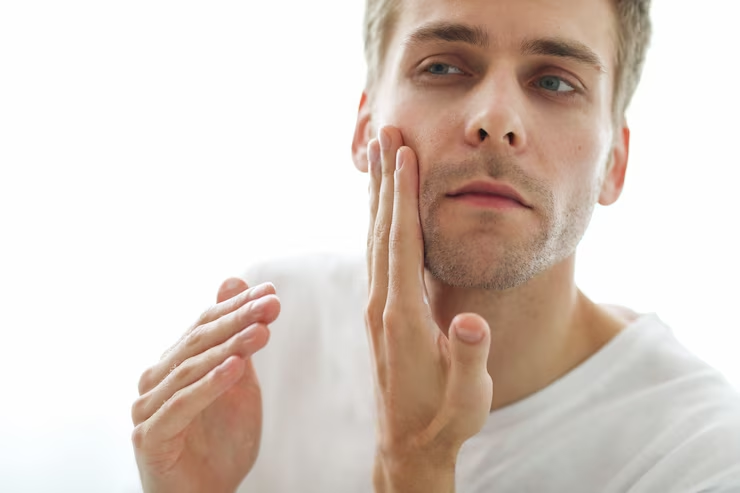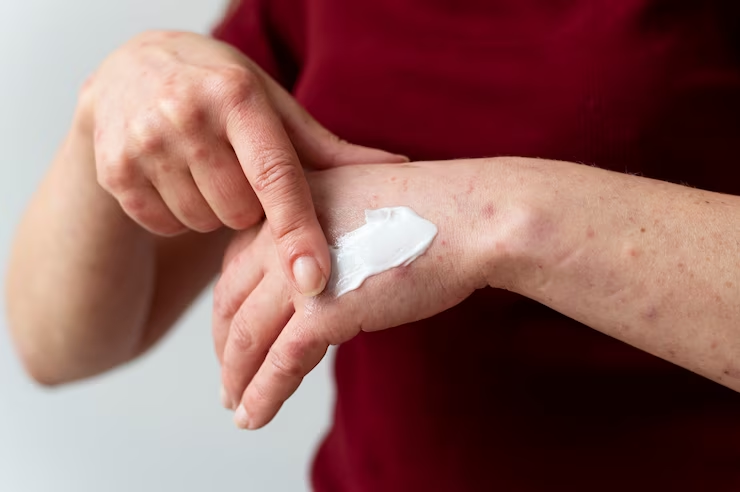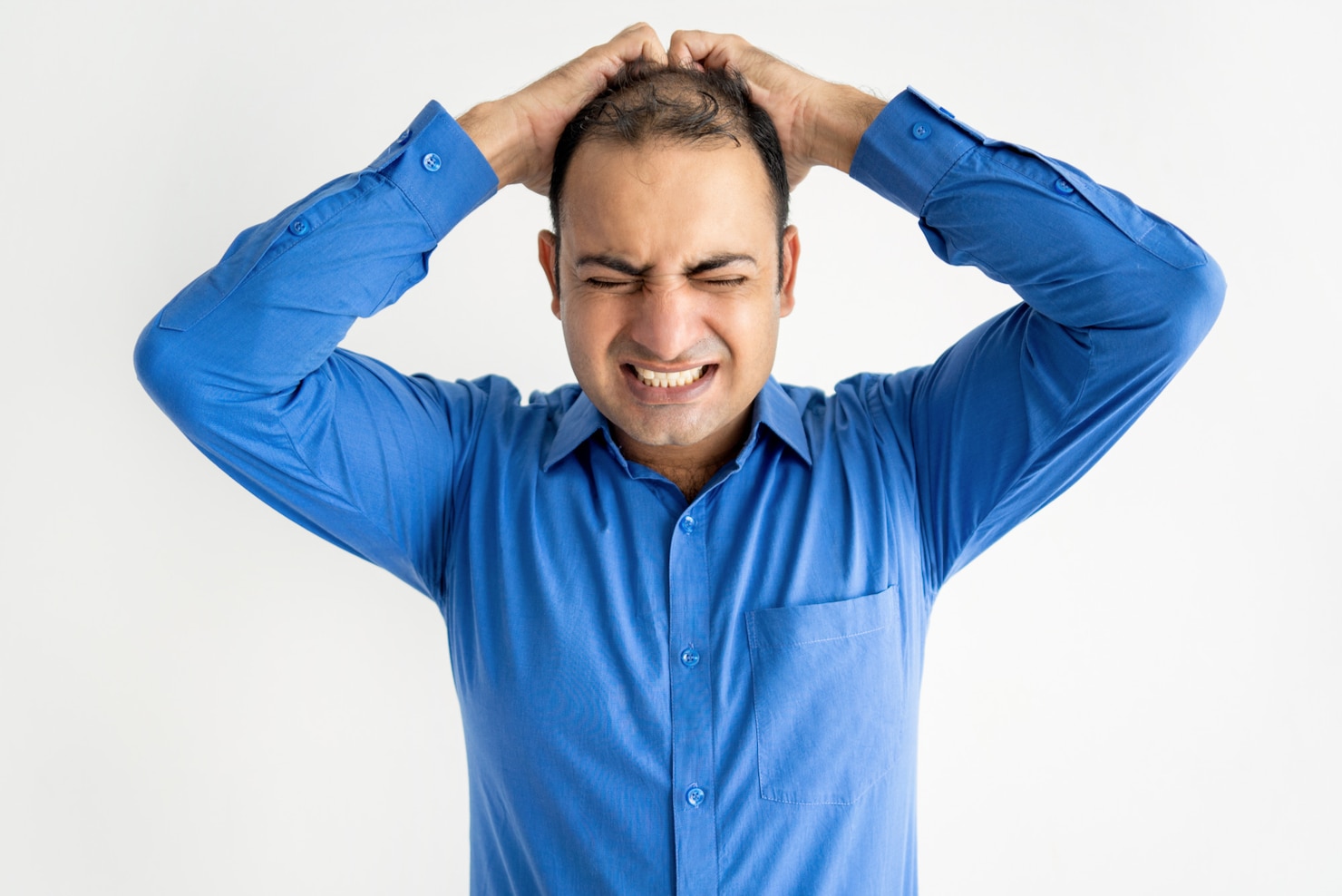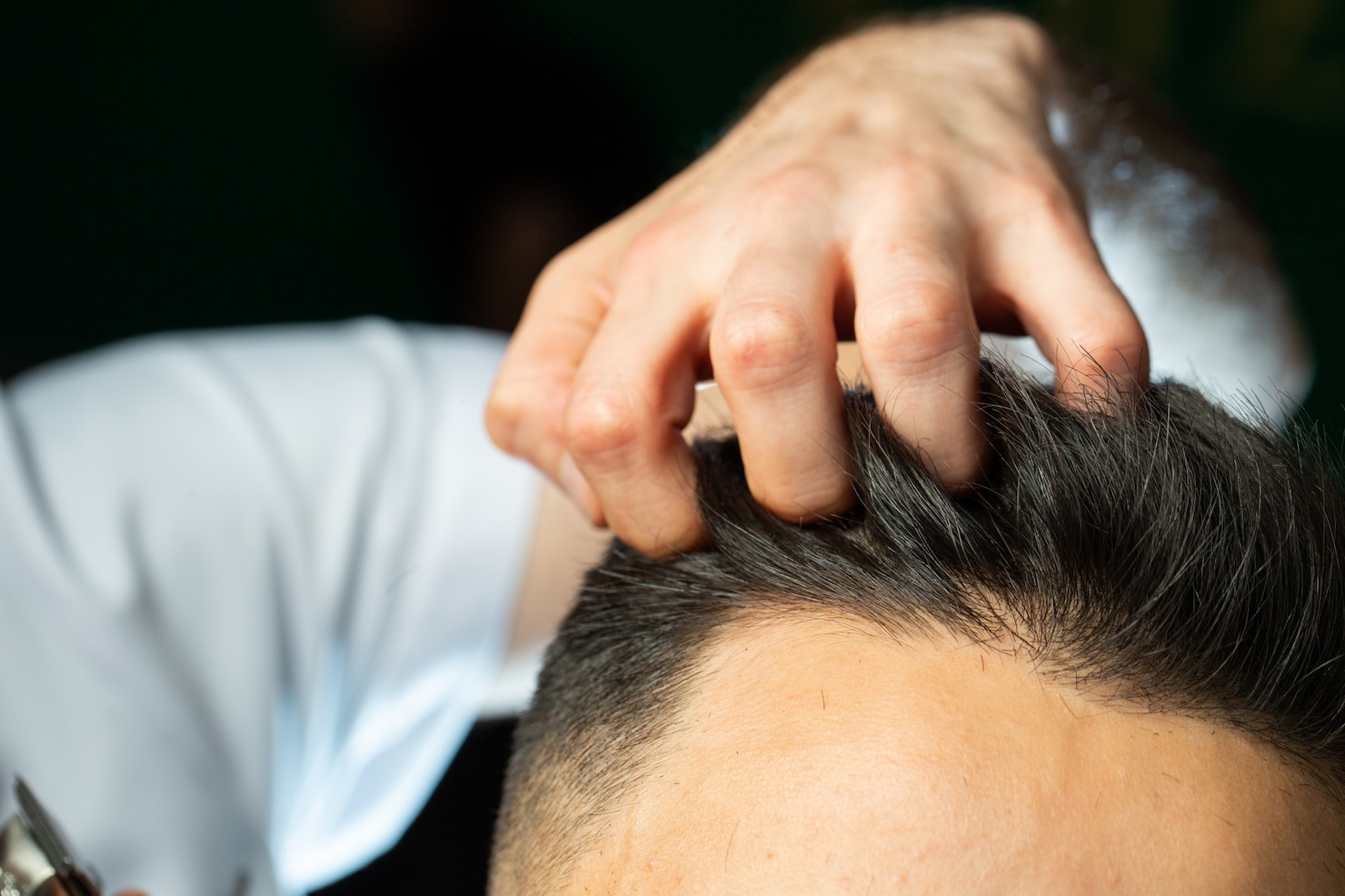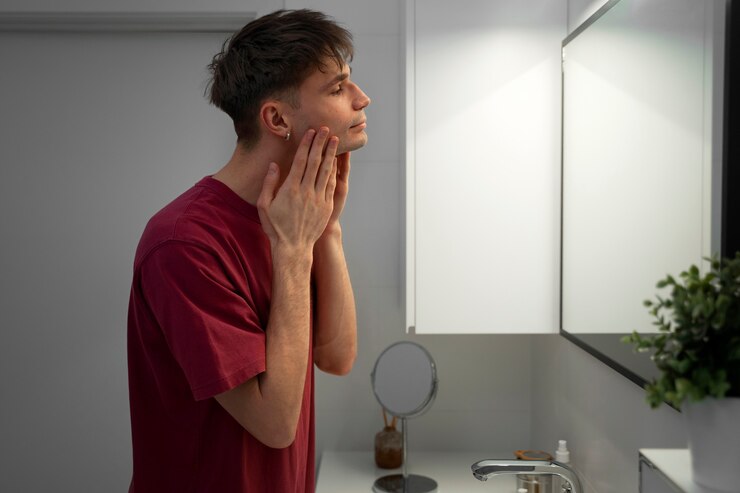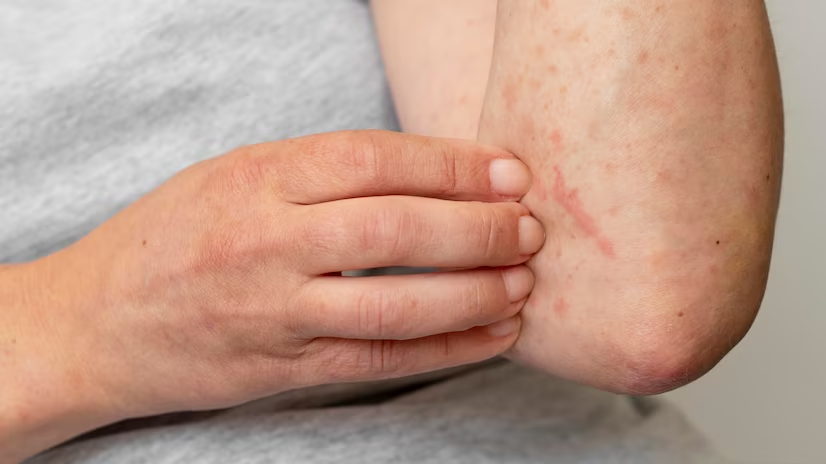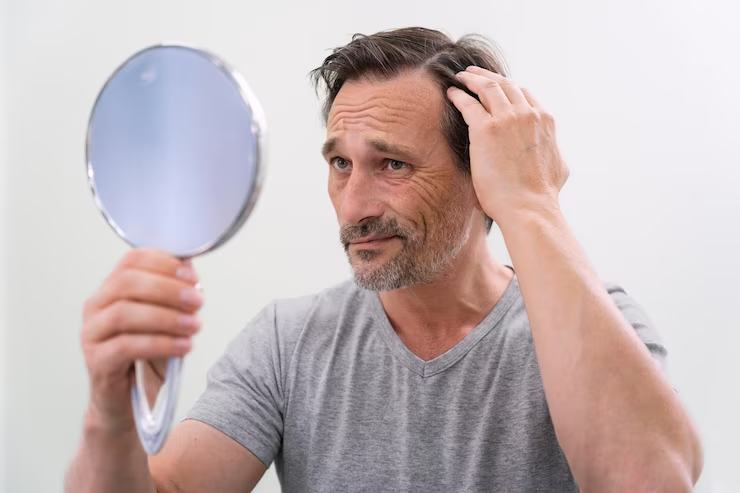
Are you struggling with the discomfort and frustration of eczema on your scalp? You're not alone. Dealing with scalp eczema can be particularly challenging as it causes physical discomfort and can lead to embarrassment and self-consciousness.
But fear not! This comprehensive guide will explore effective strategies and treatments to help you alleviate the symptoms and manage eczema on your scalp. We've got you covered whether you're seeking relief from persistent itching, flaking, or soreness. So, let's dive in and discover how to treat eczema on scalp once and for all.
Understanding Scalp Eczema

Causes and triggers
Understanding the causes and triggers of scalp eczema is crucial in effectively managing and treating this condition. While the exact cause of eczema remains unknown, a combination of genetic, environmental, and immune system factors is believed to play a role. When it comes to scalp eczema specifically, several factors can contribute to its development and exacerbation:
Genetic Predisposition:
Individuals with a family history of eczema, allergies, or asthma are more likely to develop scalp eczema. Genetic factors can influence the skin's barrier function and immune response, making it more susceptible to irritation and inflammation.Dry Scalp:
A lack of moisture in the scalp can disrupt its natural protective barrier, leading to dryness, itching, and increased vulnerability to eczema flare-ups. Proper hydration is essential for maintaining scalp health and minimizing the risk of eczema.Allergens and Irritants
: Exposure to certain allergens and irritants can trigger or worsen scalp eczema symptoms. Common culprits include harsh hair products (shampoos, conditioners, styling gels), chemical dyes, perfumes, and environmental factors like pollen or dust mites. Identifying and avoiding these triggers is an essential step in managing scalp eczema.Stress and Emotional Factors:
Stress and emotional factors can contribute to developing and exacerbating eczema symptoms. Emotional stress can weaken the immune system and disrupt the skin's natural barrier function, making it more susceptible to flare-ups. Learning effective stress management techniques and prioritizing self-care can help reduce the impact of these triggers.Weather Conditions:
Extreme weather conditions, such as cold, dry winters or hot, humid summers, can impact the scalp's moisture balance and trigger eczema flare-ups. Protecting the scalp with appropriate headwear and adjusting your hair care routine to seasonal changes can help mitigate these effects.Common Symptoms and Signs of Eczema on the Scalp

Understanding the common symptoms and signs associated with this condition is the first step towards finding effective treatment solutions. We will explore the typical symptoms and signs of eczema on the scalp and delve into the strategies on how to treat eczema on scalp. By recognizing these indicators, you can better manage your condition and seek appropriate remedies and treatment for eczema on scalp.
Itching and Irritation:
Itchy scalp is one of the hallmark symptoms of scalp eczema. The urge to scratch can be intense, leading to further irritation and potential damage to the scalp. Scratching may provide temporary relief but can exacerbate the condition in the long run.Redness and Inflammation
: The affected areas of the scalp may appear red, inflamed, and visibly irritated. This redness can be localized or spread across larger areas of the scalp, depending on the severity of the condition.Dryness and Flaking:
Scalp eczema often leads to dryness and flaking of the skin. The scalp may feel tight and appear visibly dry, and fine white or yellow flakes may be present. These flakes differ from dandruff and are often larger and more adherent to the scalp.Scalp Soreness and Tenderness:
In some cases, eczema on the scalp can cause soreness and tenderness. The scalp may feel sensitive to touch, and even gentle brushing or combing can be uncomfortable.Scalp Swelling and Crusting
: Severe cases of scalp eczema can result in swelling and the formation of crusts or thickened patches on the scalp. These crusts may ooze or weep fluid, leading to additional discomfort and potential risk of infection.Differentiating Scalp Eczema from Other Conditions:
Identifying the specific scalp condition is crucial to determine the most appropriate treatment approach. By gaining insights into the distinguishing factors, you can make informed decisions on how to treat eczema on scalp and promote a healthier, more comfortable scalp. Here's how you can differentiate scalp eczema from other conditions:
Scalp Eczema
Symptoms:
Scalp eczema typically presents with intense itching, redness, inflammation, dryness, and flaking. The scalp may also be sore and sensitive to touch.Appearance:
Eczema on the scalp often results in larger, greasy, or scaly patches that may appear red and irritated. The flakes are usually larger and more adherent to the scalp than dandruff.Triggers:
Scalp eczema can be triggered by allergens, irritants, stress, dryness, and genetic factors.Treatment:
Managing scalp eczema involves a combination of gentle hair care, regular scalp hygiene, moisturizing the scalp, and potentially using topical steroids or other prescribed medications. It's important to avoid scratching to prevent further irritation.Dandruff (Seborrheic Dermatitis)
Symptoms:
Dandruff is characterized by white or yellowish scalp flakes, itching, and mild redness. However, the itching is generally milder compared to scalp eczema.Appearance:
Dandruff flakes are smaller, dry, and more easily dislodged from the scalp than those associated with scalp eczema.Triggers:
Overgrowth of yeast on the scalp, hormonal imbalances, stress, and certain medical conditions can contribute to dandruff.Treatment:
Dandruff can often be managed with over-the-counter antidandruff shampoos containing active ingredients like zinc pyrithion, ketoconazole, or selenium sulfide. It's essential to follow the product instructions and maintain good scalp hygiene.Scalp Psoriasis
Symptoms:
Scalp psoriasis presents with thick, silvery-white scales on the scalp, often accompanied by itching, redness, and inflammation. The scales are typically thicker and more distinct compared to the flakes seen in scalp eczema.Appearance
: Psoriasis plaques on the scalp may extend beyond the hairline onto the forehead, ears, or back of the neck. The scales can be itchy or painful and may bleed if scratched.Triggers:
Psoriasis is an autoimmune condition influenced by genetic factors. Triggers include stress, infections, certain medications, and changes in weather or climate.Treatment
: Treatment options for scalp psoriasis include medicated shampoos, topical corticosteroids, coal tar preparations, salicylic acid, or medications. It's advisable to consult with a dermatologist for proper diagnosis and personalized treatment recommendations.Diagnosing Scalp Eczema
When experiencing symptoms of scalp eczema, it is essential to seek medical advice for an accurate diagnosis and appropriate treatment. Here's a general overview of the diagnostic process:

Seeking Medical Advice
If you suspect you have scalp eczema or are experiencing persistent scalp symptoms, it is advisable to consult a dermatologist. They have the expertise to assess your condition, differentiate it from other scalp conditions, and provide the most suitable treatment options.
Physical Examination and Evaluation
During the appointment, a dermatologist will conduct a thorough physical examination of your scalp. They will closely examine the affected areas, assess the symptoms, and inquire about your medical history, including any family history of eczema, allergies, or asthma. This evaluation helps the healthcare professional determine if scalp eczema is the likely diagnosis.
Medical Tests and Procedures
Diagnosing scalp eczema is usually based on a clinical evaluation and medical history. However, in certain situations where the diagnosis is unclear or if other conditions need to be ruled out, additional tests and procedures may be recommended:
Patch Test:
A patch test may be conducted to identify potential allergens or irritants triggering or exacerbating the scalp eczema. Small patches containing common allergens are applied to the skin to determine if there is an allergic reaction.Skin Biopsy:
A skin biopsy may be performed in rare cases where the diagnosis is uncertain or other skin conditions are suspected. This involves taking a small sample of the affected scalp skin for laboratory analysis to help confirm the diagnosis and rule out other conditions like psoriasis.It is important to note that the specific tests and procedures recommended may vary based on individual circumstances and the healthcare professional's assessment. Always follow the healthcare professional's advice and attend follow-up appointments as necessary to monitor progress and make any adjustments to the treatment plan.
Treatment for Eczema on Scalp
When it comes to treatment for eczema on scalp, there are several approaches you can take, including over-the-counter medicines. Here are some commonly recommended options:

Over-the-counter Treatments
Gentle Shampoos and Cleansers
Use mild, fragrance-free and sulfate-free shampoos and cleansers specifically for sensitive or eczema-prone skin.
Look for products free of harsh chemicals, sulfates, and fragrances, which can further irritate the scalp.
Gently massage the shampoo into the scalp, focusing on the affected areas, and rinse thoroughly.
Avoid hot water, as it can dry out the scalp. Opt for lukewarm water instead.
Moisturizing Creams and Ointments
Regularly moisturize the scalp with gentle, hypoallergenic creams or ointments to restore hydration and strengthen the skin's natural barrier.
Look for products that contain ingredients like ceramides or hyaluronic acid, which help to retain moisture and soothe dryness.
Apply the moisturizer to the affected areas of the scalp and gently massage it in.
It's best to moisturize the scalp when it is slightly damp after washing. Do make sure that you use these products after consulting with a dermatologist.
Anti-itch Products
Over-the-counter anti-itch creams or lotions containing ingredients like hydrocortisone can temporarily relieve itching and inflammation. Do not use hydrocortisone without the prescription of a dermatologist because it is a topical steroid and steroids should only be used for topical applications after a skin specialist advises you to use it.
It's important to avoid excessive use of topical corticosteroids, as prolonged use can have side effects. Therefore, it is always better to get evaluated by a specialist doctor first.
Follow the instructions on the product packaging and use them sparingly.
If the itching persists or worsens, it is advisable to consult a dermatologist for further guidance.
Prescription Medications
In more severe or persistent cases of scalp eczema, prescription medications may be recommended by a healthcare professional or dermatologist. These medications can provide targeted treatment and help manage symptoms effectively. Here are some commonly prescribed options:
Topical Corticosteroids
Topical corticosteroids are commonly prescribed to reduce inflammation, itching, and redness associated with scalp eczema.
They work by suppressing the immune response and reducing the release of inflammatory substances in the skin.
They work by suppressing the immune response and reducing the release of inflammatory substances in the skin.
The strength and formulation of the corticosteroid will depend on the severity of the eczema. Lower-potency corticosteroids are typically used for sensitive areas like the scalp.
Follow the prescribed instructions for application and duration of use to avoid potential side effects associated with prolonged use of corticosteroids.
Calcineurin Inhibitors
Calcineurin inhibitors, such as tacrolimus (Protopic) and pimecrolimus (Elidel), are non-steroidal medications that modulate the immune response and reduce inflammation.
They are commonly used for treating scalp eczema when corticosteroids may not be suitable or in cases where long-term corticosteroid use needs to be minimized.
These medications are usually applied topically to the affected areas of the scalp as directed by a dermatologist.
Topical Antifungal Agents (if necessary
)Sometimes, scalp eczema may accompany a fungal infection, exacerbating the symptoms.
If a fungal infection is suspected or diagnosed, a healthcare professional may prescribe topical antifungal agents, such as ketoconazole or ciclopirox, to address the underlying condition.
These antifungal agents work by targeting and eliminating the fungi causing the infection, helping to improve scalp health and manage the eczema symptoms. It is always important to get evaluated by a dermatologist because eczema and fungal infection have different treatment regimens and a specialist doctor needs to diagnose it correctly first in order to manage the condition.
Natural and Alternative Treatments for Eczema on Scalp
In addition to traditional treatments, some individuals may explore natural and alternative approaches to manage scalp eczema. While these remedies may relieve some people, it's important to consult a healthcare professional preferably a dermatologist before incorporating them into your treatment plan. Here are a few natural and alternative treatments that are sometimes considered:

Coconut Oil
Coconut oil has moisturizing and anti-inflammatory properties that may help soothe the scalp and reduce itching.
Apply organic, cold-pressed coconut oil directly to the affected areas of the scalp.
Gently massage the oil into the scalp and leave it on for a few hours or overnight before rinsing.
Remember that coconut oil may not suit everyone, and some may experience clogged pores or increased irritation. Doing a patch test and monitoring your scalp's response is advisable.
Aloe Vera
Aloe vera gel is known for its cooling and soothing properties, which can help alleviate scalp eczema symptoms.
Apply fresh aloe vera gel or use commercially available aloe vera products specifically formulated for scalp use.
Massage the gel onto the affected areas and leave it on for a certain period before rinsing.
Aloe vera may temporarily relieve itching and inflammation, but its effectiveness may vary among individuals, therefore, this remedy might not be beneficial for certain individuals.
Tea Tree Oil
Tea tree oil has natural antiseptic and anti-inflammatory properties, which may assist in managing scalp eczema.
Dilute tea tree oil with a carrier oil, such as coconut or jojoba oil, to avoid potential skin irritation.
Apply the diluted mixture to the affected scalp areas, gently massaging it.
Be cautious with tea tree oil, as some individuals may be sensitive to it or experience allergic reactions. It's recommended to do a patch test before regular use.
Probiotics
Probiotics.), commonly found in certain foods and supplements, can help improve gut health and potentially impact the immune system, which may positively affect eczema.Incorporate probiotic-rich foods into your diet, such as yogurt, kefir, and sauerkraut, or consider taking a probiotic supplement after consulting with a healthcare professional.
While probiotics may contribute to overall health, their specific impact on scalp eczema requires further research.
When to Seek Professional Help
While various treatments and home remedies are available for scalp eczema, it is important to know when to seek professional help. Consulting a healthcare professional or dermatologist is recommended in the following situations:
Severe Symptoms:
If your scalp eczema symptoms are severe, persistent, or rapidly worsening despite self-care measures and over-the-counter treatments, it is advisable to seek professional assistance. This includes intense itching, significant redness, severe flaking, oozing, or crusted lesions.Impact on Daily Life
: If scalp eczema is interfering with your daily activities, sleep, or quality of life, it's essential to consult a healthcare professional. They can assess the severity of your condition and recommend appropriate treatment options to alleviate symptoms and improve your well-being.Spreading or Infection:
If you notice eczema spreading to other areas of the scalp or developing signs of infection, such as increased pain, warmth, swelling, or discharge, it is crucial to seek medical attention promptly. Infections can worsen eczema and require specific medical treatment.Lack of Improvement:
If your scalp eczema does not show any improvement or continues to recur despite trying various treatments and home remedies, it is recommended to consult a healthcare professional. They can evaluate your condition, identify underlying factors contributing to the lack of improvement, and provide further guidance.Impact on Hair Loss:
If you are experiencing significant hair loss or thinning in addition to scalp eczema, it is important to seek professional help. A healthcare professional can assess the underlying causes, such as dermatitis-related hair loss, and provide appropriate treatment options or referrals.Need for Prescription Medications
: If your scalp eczema requires prescription medications such as topical corticosteroids, calcineurin inhibitors, or antifungal agents, it is crucial to consult with a dermatologist. They can accurately diagnose your condition, prescribe the appropriate medications, and provide guidance on their safe and effective use.If you have any concerns or questions about your scalp eczema or its treatment, it is always best to consult a healthcare professional for proper evaluation and guidance. They can help you navigate the treatment options and provide the most suitable approach to managing and treating scalp eczema.
Conclusion
Scalp eczema can be a challenging condition to manage, but with the right treatment approach, it is possible to find relief and improve the health of your scalp.
With a comprehensive approach that combines medical advice, self-care strategies, and the right treatments, you can take control of scalp eczema and experience improved scalp health and overall well-being. Don't hesitate to contact dermatologists for support and guidance along the way.

